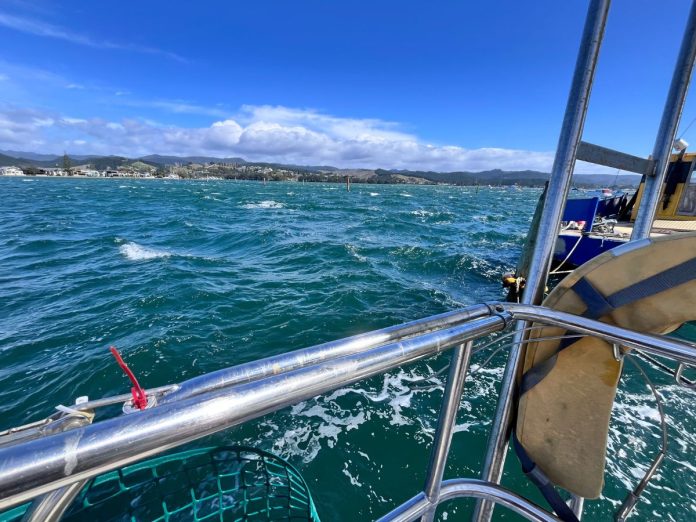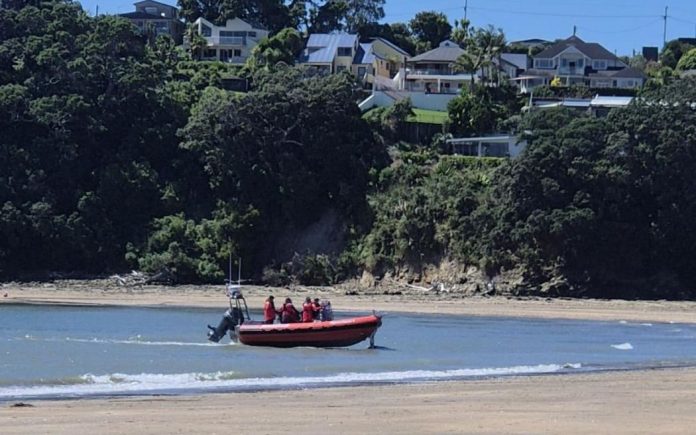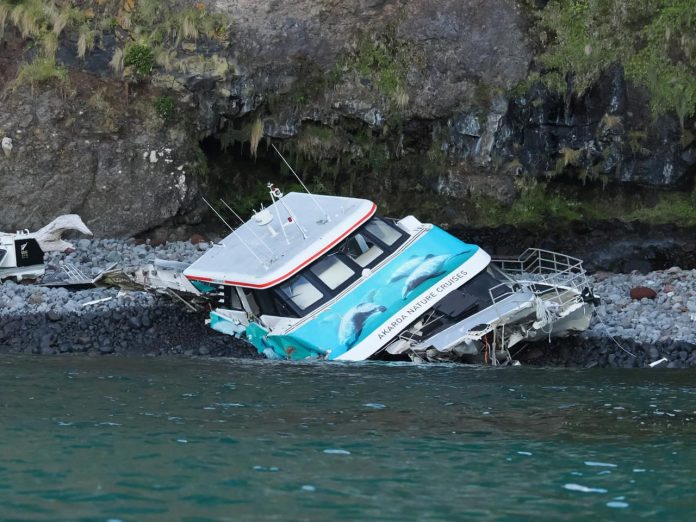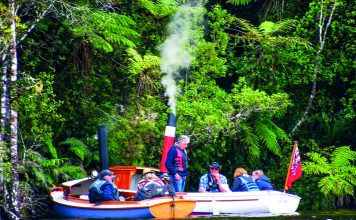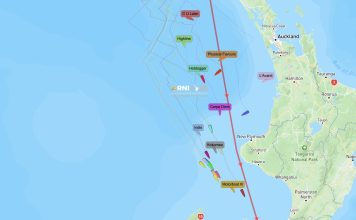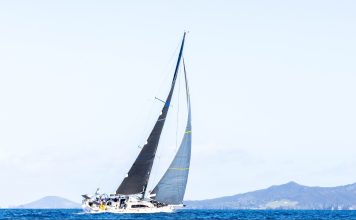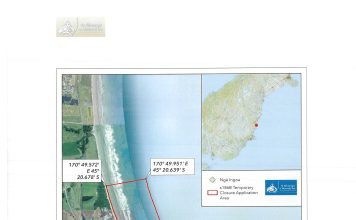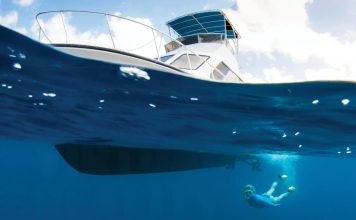A storm across the Coromandel
The entire Coromandel Peninsula was hit hard overnight by a major weather system that swept through with destructive force. High winds and sudden gusts tore across the region, hammering towns, harbours, and anchorages alike.
In Whangamatā Harbour, where our family keeps our liveaboard, the storm hit with ferocity. Most of the time the harbour is calm and manageable, but on this occasion the wind funnelled straight into our exposed spot just off the marina channel — and turned the night into one we’ll never forget.
Gusts that knocked us sideways
On Saturday morning the winds sat around 25-30 km/h, but it was the much stronger gusts that made me uneasy. With hubby away caring for a sick relative, I chose to stay onboard rather than attempt the trip to shore to find a bed for the night. I knew the weather forecast but didn’t anticipate its ferocity.
By the afternoon wind and gusts had strengthened further, and by 10pm the storm was in full force. The Whangamatā Coastguard later confirmed that gusts reached around 100 km/h, a hair-raising speed when you’re afloat, and it certainly felt stronger.
Our 50-foot Jeanneau Sun Kiss is a strong, heavy yacht with a deep keel, but side-on between two mooring poles we had no choice but to take it square on. She rolled 10–30 degrees most of the time, slamming to around 40 degrees in the worst gusts.
The sounds were relentless: the wind turbine screaming, ropes straining, rigging howling, and the hull slamming with every wave. Inside, the aft head flooded with water shaken from the bilge (only discovered by an unexpected footbath during the night.) I braced in bed most of the night, getting up often to check noises coming from the galley. Sleep was impossible.
When gear turns against you
It wasn’t the hull that worried me — it was the outside gear. In the strongest gusts, one of our large solar panels ripped free. I had just stepped into the aft head which has a window that opens onto the cockpit when I heard a deafening crack, a rush of air, and felt a violent bang right outside. I stepped out of the head very quickly, not knowing what had fallen with such a rush and bang but with my near miss at the top of my mind I used the forward head instead. In the early hours of the morning I found the panel lying smashed in the cockpit, leaving glass everywhere.
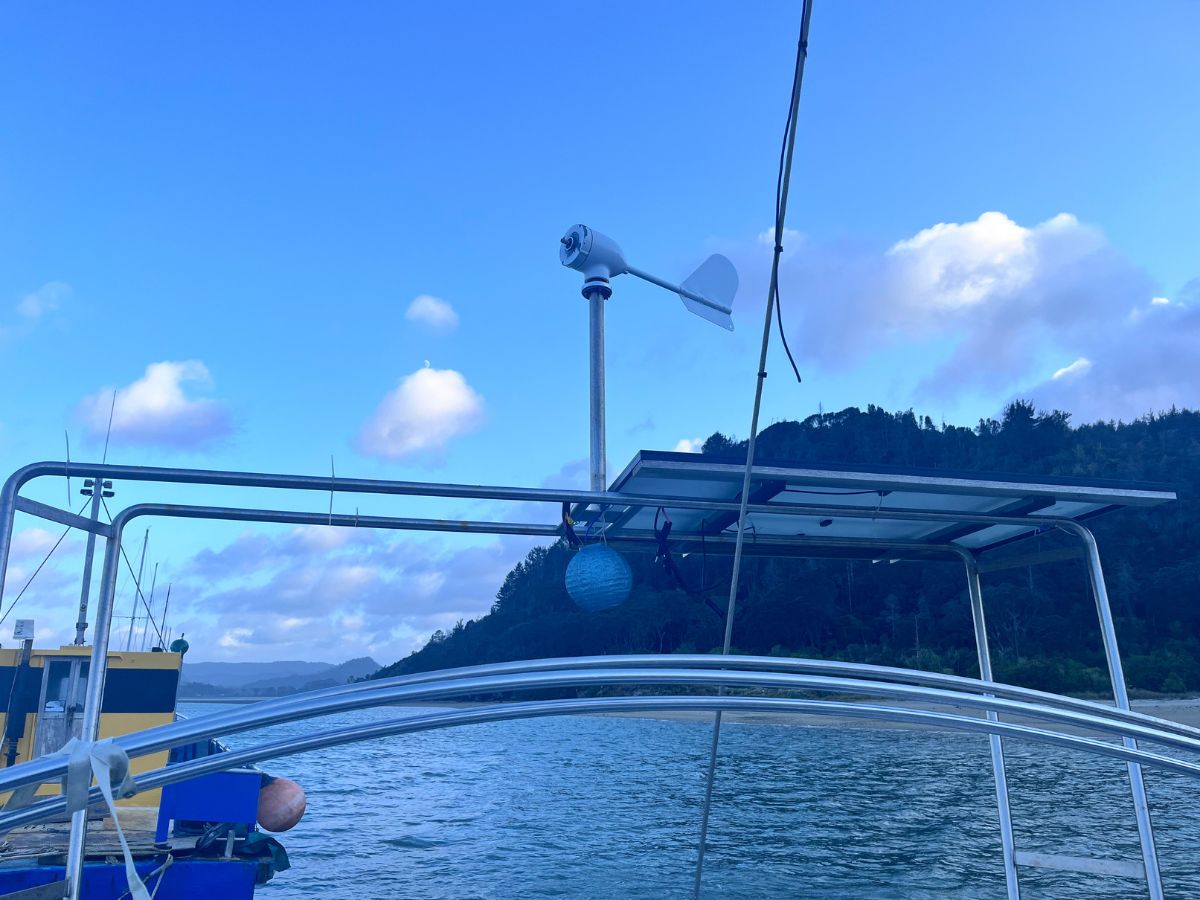
Though designed for strong winds and tied off earlier to keep it still, the wind turbine shook loose in the gusts, whirring at full speed before shedding blades. In the back of my mind I can’t help but think it had been a good idea to put space between myself and the cockpit area.
Thankfully, our recently replaced Bimini survived untouched. A nearby neighbour wasn’t so lucky — their canvas was ripped to shreds.
Mooring failure
As the waves lifted us, the mooring lines pulled the orange guide discs to the top of their poles, where they jammed under strain. In the night, one pole gave way.
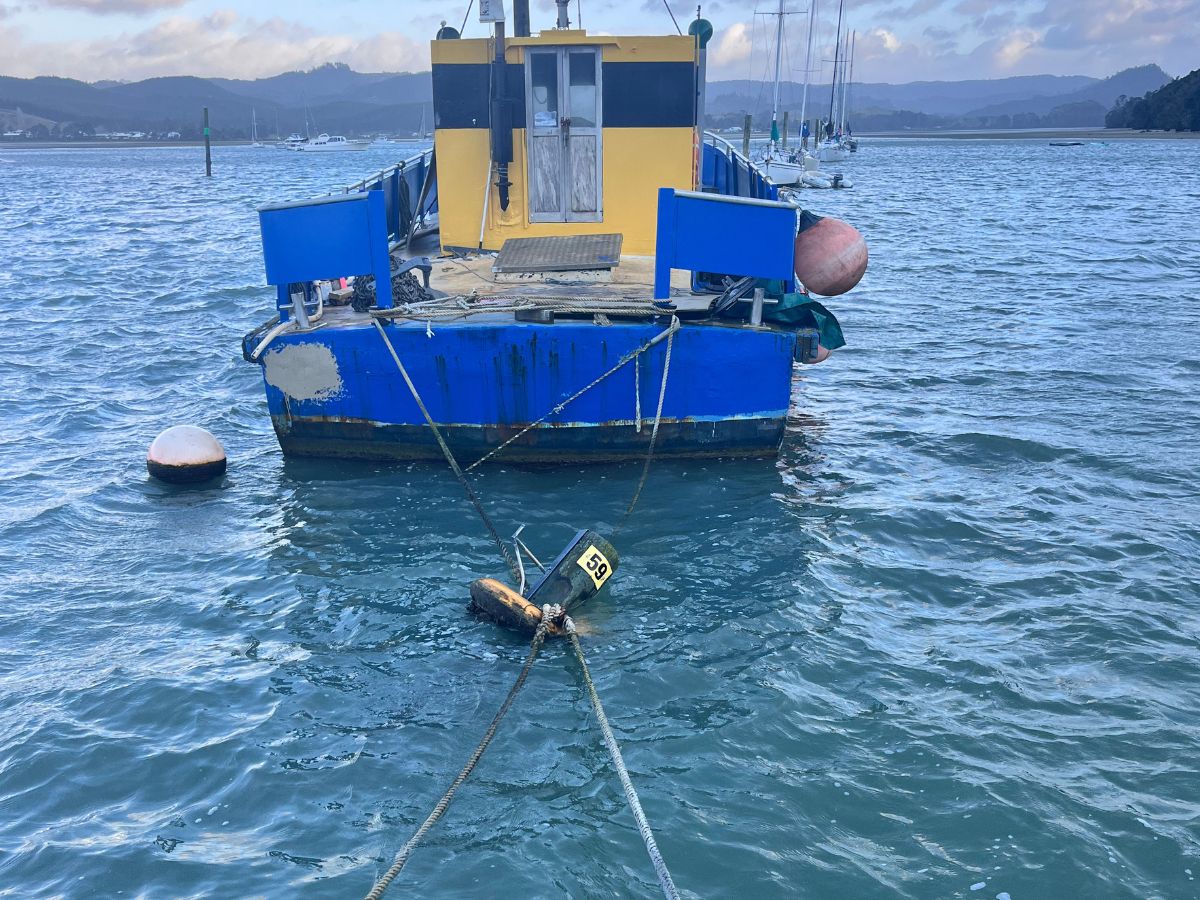
It happened to be the pole between us and a heavy trawler. The ropes and discs stayed attached, holding the pole in place but floating, and us together. The forward pole, unshared and vital, remained standing. If that one had gone, we would have been in serious trouble.
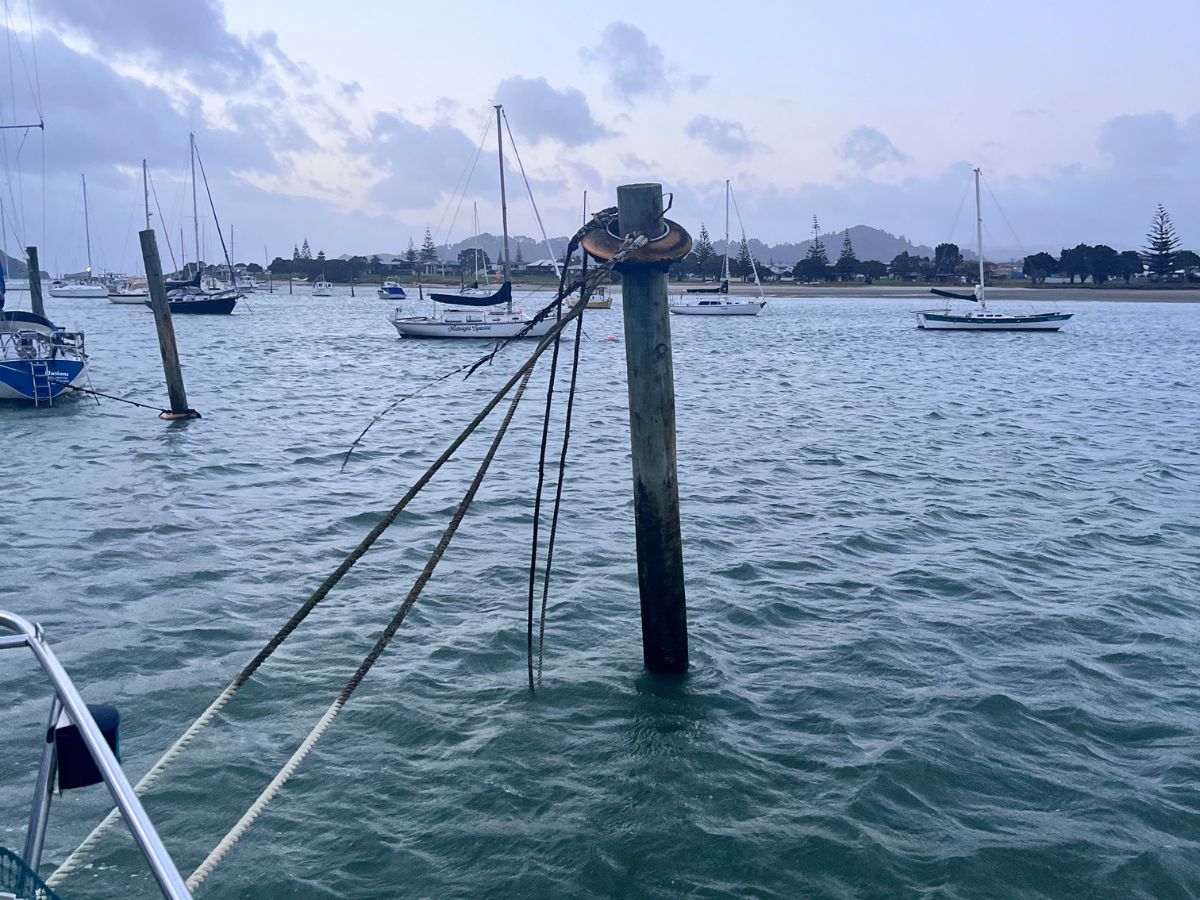
Community under pressure
Across Whangamatā, other boats struggled. Solar arches broke, canvas shredded, and in the Wentworth River a couple of boats tore free of their moorings. Our local Coastguard worked through today, retying vessels before they could become hazards.
That’s the part you remember as much as the wind — the community response, neighbours looked after each other.
Sunday morning
By this morning the winds still blew hard across the Peninsula, though less frightening than the night before. The solar panel and turbine can be replaced. The broken mooring pole will need work. For now, Coastguard have advised us to remain where we are until conditions ease.
Our Sun Kiss proved her strength, but it was the support of the Coastguard and community — and the relief of daylight after a night of roaring gusts — that made the difference.








